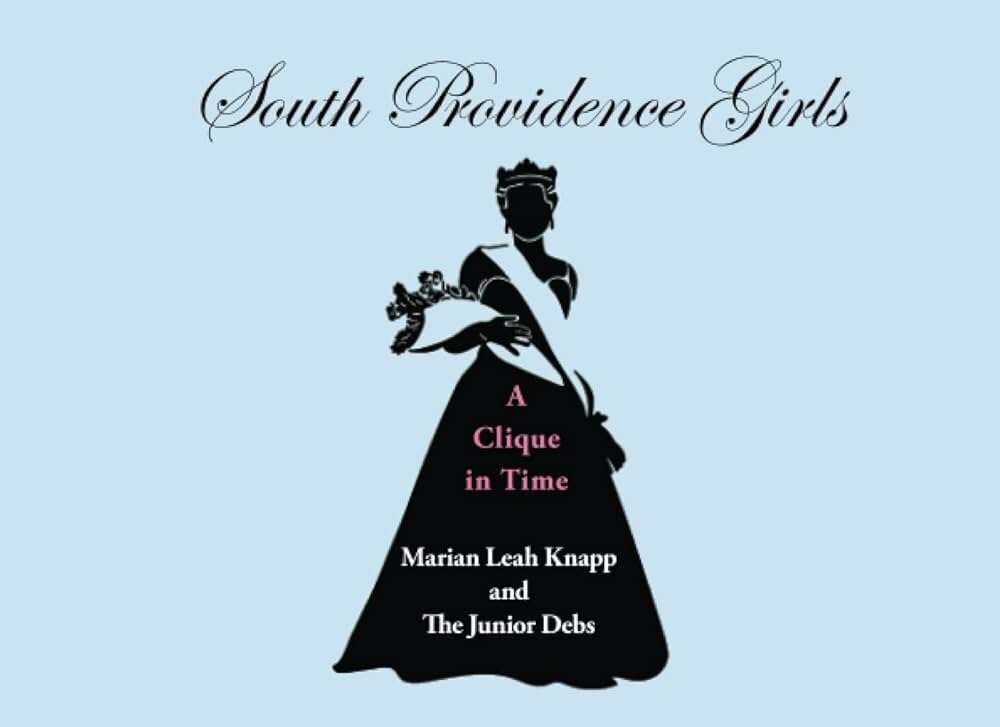Book tells of Jewish girls growing up in South Providence in a bygone era
“South Providence Girls: A Clique in Time,” by Marian Leah Knapp and The Junior Debs (Loagy Bay Press, 2023), takes readers back in time to 1938, when a group of Jewish girls were born in a gritty neighborhood in what is now known as the South Side of Providence. The biographical book tells the story of the girls and is interspersed throughout with quotes from the individual women.
Seven years old when World War II ended, their generation is often overlooked.
“Our cohort had some labels, which very few remember or use today: the Silent Generation and the Lucky Few Generation. Silent because we simply followed rules and expectations and grew up quietly in a time of tranquility after the war, with limited worries. Lucky because, as one of the smallest demographic units of the 20th century, we had less competition for jobs and more opportunities for learning and economic advancement,” Knapp wrote.
The girls grew up in a Jewish community in South Providence that was surrounded by a larger, mostly Catholic community. The world these girls lived in was shockingly antisemitic by today’s standards, thought the author and the women interviewed largely brush it off as not having impacted them.
“Another problem was that no Jewish kid could ever have the prized status of ‘perfect attendance’ because we were out of school on Jewish holidays: Rosh Hashanah, Yom Kippur, the first one or two days of Passover, and depending on how religious a family was, a few other holy days,” the book states.
I really enjoyed the recollections of the group and individual members – they helped paint a larger picture of how the world was for these young women.
Having experienced rationing as elementary schoolchildren, Naomi is quoted as remembering, “My dad somehow got bubble gum – I’m sure it was black market. I remember chewing it and putting it in the refrigerator in water so it would keep for the next day.”
The girls came together in junior high school to form a larger group that would become The Junior Debs.
“In addition to the early bonding opportunities, there were overarching forces that pulled us together. Being Jewish was the big one. That religious and ethnic status made us fundamentally different from everyone else, and made us distinctly visible to the rest of the community.
“We were aware of this outsider status, but it didn’t have much of a lasting impact on us. It was more background noise than anything else and did not substantially interfere with having non-Jewish friends.”
The state of Israel was created when the girls were 10 years old, and many of them were involved in Young Judaea and other Zionist youth movements.
“There was a great deal of encouragement for Jewish kids to identify with the fledgling state, and the message was that Israel needed our help with its development and survival. Many of us ended up in Zionist-oriented activities like Young Judaea.”
As the girls got older, they began their own volunteer efforts, organizing a Saturday night club called the Kozy Korner, at Congregation Sons of Abraham in South Providence.
While in junior high, the girls got wind of a Jewish high school sorority chapter created by mothers on the East Side.
“Iota Phi was a national sorority. The images and messages that we somehow received were that Iota Phi represented social status – maybe even debutante status – that somehow we didn’t quite meet. This feeling was reinforced because, historically, that chapter did not invite South Providence girls to pledge and participate.”
Undaunted, The Junior Debs created themselves.
“Others saw the name as an in-your-face joke. OK, so we will never be full-blown debutantes, but we can create a group and make our own definition of what debutante means and demonstrate it. Still others thought it was a mild slap on the wrist or maybe even a stick-your-tongue-out to the East Side sorority girls.”
After graduating from Hope High School, the girls went their separate ways. Years later, when they reunited, they found out that all 10 went to college, eight finished college and six earned graduate degrees.
Only two Debs stayed in Rhode Island as adults. “The Debs spread across the country, landing in Florida, California, Iowa, Michigan, Arizona, Connecticut and Massachusetts.”
As often happens, some of the women stayed in touch, but the larger group fractured as the women moved, and started families and careers. “Over the years, and as we spread out, the feelings of connectedness gradually dimmed. Some Debs stayed in touch, others didn’t.”
But The Debs all remained a part of who they were, if not an “active network.”
Harriet changed all that when she called Knapp 30 years after high school with the idea of a reunion.
“Her momentous telephone call created an unexpected renaissance,” Knapp wrote.
The women, in various numbers, went on to have 13 reunions between 1988 and 2018. They had planned a 2020 reunion, but that one was moved to Zoom, and they have met more frequently online ever since.
The longevity of these relationships is remarkable, and so are the women themselves and the world they grew up in, which no longer exists. The women’s recollections, largely taken from interviews done while they were on a cruise, gives the book texture and vividness; these little moments from ordinary lives do the most to give the reader a sense of who these women were and the time and place that made them.
SARAH GREENLEAF (sgreenleaf@jewishallianceri.org) is the digital marketing specialist for the Jewish Alliance of Greater Rhode Island and writes for Jewish Rhode Island.








